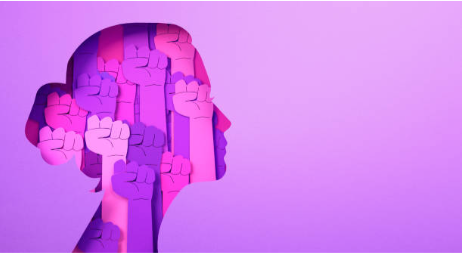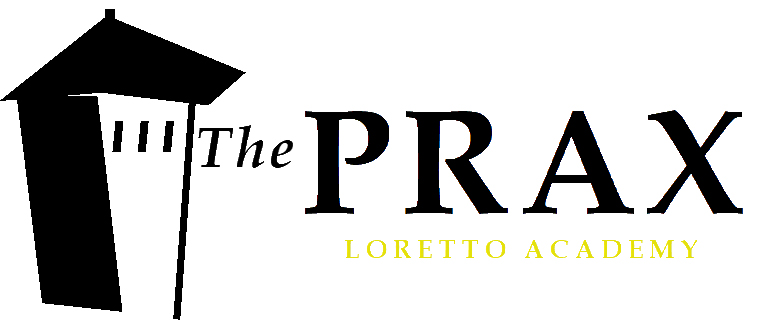Human Rights Day
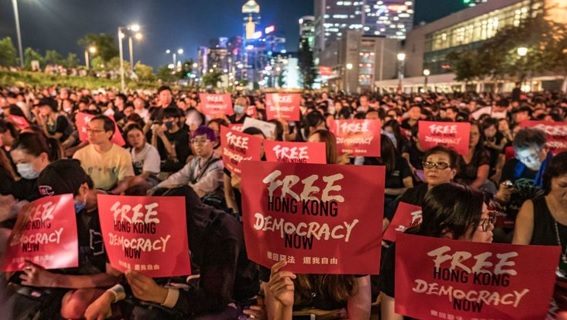
The people of Hong Kong, a southeastern Chinese territory, protest against the extradition bill that could open them up to being tried as criminals in communist China instead of by their own democratic government. These protests have been going on since March 2019. Photo courtesy of Sky News.
December 16, 2019
This year, Human Rights Day falls on Tuesday, December 10.
The United Nations General Assembly instituted Human Rights Day in 1950 as a way of commemorating the adoption of the Universal Declaration of Human Rights (UDHR) on December 10, 1948.
The UDHR is the most translated document in the world and is the combination of efforts from delegates hailing from all of humanity’s different cultural backgrounds, according to the United Nations website.
The two main principles of the UDHR are a commitment to respecting the inherent dignity of every human and a commitment to combating discrimination wherever it may exist, according to the Encyclopedia Brittanica.
The UDHR is a revolutionary, foundational document in humanity’s history; it is the single greatest victory for human rights bar none.
Human Rights Day celebrates this victory and celebrates humanity in all its shapes, sizes, and colors.
In honor of Human Rights Day, let us turn our attention to one of most impassioned ongoing struggles to fight for human rights in our world today: the protests in Hong Kong.
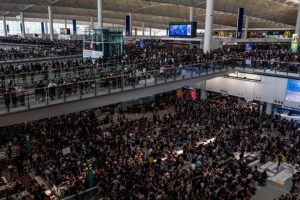
The citizens of Hong Kong, a southeastern territory of China, have been engaged in a long series of protests against China as early as March 15 of this year.
Since that day, the citizens of Hong Kong have flooded public spaces and in two tragic cases have even lost their lives in their fight to assert their rights.
Although Hong Kong is a territory of mainland China, it has enjoyed limited autonomy in the past that enabled it to create a pro-democracy government that contrasts with China’s communist government.
The conflict initially began over a bill proposed by China in February that would potentially allow people arrested in Hong Kong to be tried as criminals in China, according to the New York Times.
This sparked outrage because the governments of Hong Kong and China are so drastically different; Hongkongers worried that this bill would be used to punish political activists or pro-democracy advocates.
In several stunning displays of unity and courage, the people of Hong Kong occupied airports, streets, and other public places, often clashing with the police in confrontations that have sent many brave demonstrators to the hospital in tear-gas related incidents.
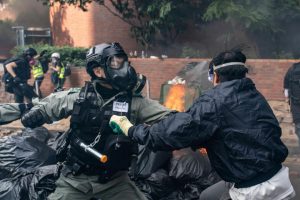
On October 23, China finally withdrew the controversial extradition bill; however, the protests have continued in full force.
The withdrawal of the bill is just one of five of Hong Kong’s demands, according to the BBC.
The other four demands are the following: withdrawal of the characterization of the protests as “riots,” a pardon for protesters who have been arrested, universal suffrage and direct elections of officials including the chief executive, and the establishment of a commission inquiring into police brutality.
On November 27, President Trump signed legislation supporting the Hong Kong protesters by imposing sanctions on officials who commit human rights violations in the Chinese territory.
Australia, Canada, the European Union, France, Germany, Japan, the United Kingdom, and several other international entities have expressed similar support for the Hong Kong protesters and a desire for peace.
By December 10, Human Rights Day, the protests will have been ongoing for 271 days.
The situation in Hong Kong is a moving reminder that we must constantly be vigilant in protecting and asserting our human rights lest they be infringed upon by the systems that govern us.

As citizens of America, a country founded on protests, we should give our utmost support and admiration to the people of Hong Kong as they fight to uphold their democracy and sovereignty.
The people of Hong Kong are fighting to preserve the principles that the UDHR was built upon — dignity and nondiscrimination.
For these reasons, we should honor the spirit of the Hong Kong protesters on December 10; in their constant struggle, they are upholding the spirit of the celebration of humanity that the Human Rights Day embodies.








